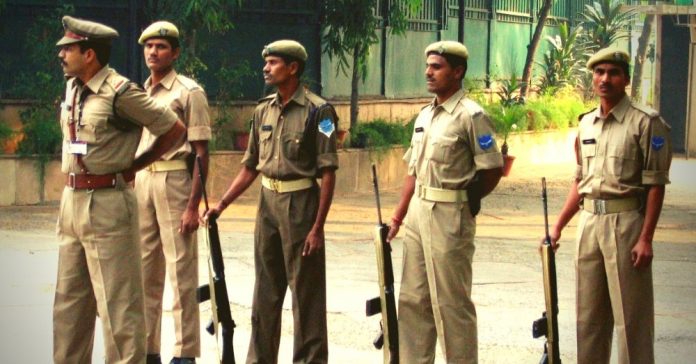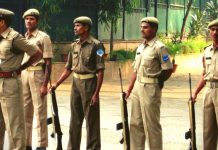This article is written by Ishan Arun Mudbidri, from Marathwada Mitra Mandal’s Shankarrao Chavan Law College, Pune. This article gives an overview of police brutality on the poor in India.
Table of Contents
Introduction
In any society, socio-economically backward people are the punch bags of the justice system. Many times poor or socially backward people bear the brunt of police atrocities. That is because they are easy prey. Moreover, the poor have neither money, power nor influence to get out of the clutches of the police. They don’t even have easy access to the Judicial system. So the poor sometimes languish in Indian jails for years despite being innocent.
The evolution of socio-economic differences in India
Socio-economic Status can be termed as a comparison of a particular person’s social and economic position to another. For instance, a person’s standard of living, education, family’s combined income, etc. will be different as compared to other persons, and this is known as the socio-economic status of that individual. Socio-economic differences can be mainly analyzed based on education, income, occupation, and also on an individual’s other attributes. Socio-economic differences were even seen in the Harappan societies. There were variations in the way the pits were made, the ornaments and jewelry, various artifacts, objects of day-to-day use, and many other things in the Harappan society. Since then, these differences have only evolved and today we see differences in the clothes we wear, the eating habits, houses we live in and many more things. Today, with the latest technology and the various new methods, finding the Socio-economic status of a certain class of individuals is child’s play. Better standard of living, higher education, and a better financial situation generally depict a higher socio-economic status.
Police brutality on the poor
Police Brutality has become a blazing hot topic in recent times. Especially after the misconduct of the police in the United States resulting in the death of a person, has caused unrest and anger among all in the society. However, the chaos caused in the USA has not yet had a major impact on India. India has also been witness to police misconduct and misuse of power but few have raised their voice against it. The Police stand at the forefront of the Indian democratic system and play a key role in the functioning of society. However, in many instances, while discharging their functions of protecting the people and ensuring law and order, the police have often abused and misused their powers for their gains. The police have used false and illegal means to achieve their personal goals and in the end, it is the common man who suffers especially the poor and vulnerable sections of the society. It is the poor who bear the most scars and that is the sad state of affairs that we are living in. The powers of the police in India are mentioned in various acts like the Code of Criminal Procedure 1973, The Police Act 1861, The Delhi Special Police Administration Act 1946, The Model Police Act 2006, etc. These Acts define the functions and duties of the Police which include:-
- Filing of the First Information Report(FIR).
- Patrolling and Surveillance.
- Making Arrests
- Taking preventive action against the wrongdoers,
- Carrying out investigation and search and seizure.
- Interrogation of the offenders etc.
The police are required to perform their duties lawfully, but in many instances, it has so happened that the Police have misused their powers for their gains and hence the term police brutality. Misusing of powers can be termed as illegally taking action. Following are the types of illegal actions taken by the police:-
1. Illegal/ False arrest
The literal meaning of the term Arrest has not been defined in the Criminal Procedure Code 1973, however, Section 46 of the Code of Criminal Procedure 1973 defines how an Arrest is made. This section gives the Police the power to arrest with all the necessary means possible in case the person attempts to escape the arrest. Arrests can be made in both civil as well as criminal cases. The arrested person has a right to know why he/she is getting arrested. For instance, Article 21 and Article 22 of the Constitution of India give rights to the arrested person to get to know the reason for the arrest. In the case of Bhim Singh v State of Jammu and Kashmir (1984), the petitioner was suspended on the opening day of the Budget session from the Assembly. Later he was arrested and taken into custody. His wife filed a petition to declare his arrest as illegal. The Court held that the arrest was illegal. However, the police can misuse their powers and arrest the person on baseless grounds. Many times it has happened that the police have arrested the wrong person to solve the investigation beforehand. In the Madhubala Mondal case, Mondal was 59-years-old and wrongfully detained for three years in Assam as a result of “mistaken” identity by the police. Many innocent people have died in fake encounters conducted by the Police. The police officers further ask for money from families and relatives of the person who is illegally arrested for his release. This is called an illegal or false arrest. The Code of Criminal Procedure states that, when an arrest is made without following the rules mentioned in the Code, such an act is an unlawful restraint on the individual’s liberty and freedom.
2. Gathering false evidence
The term evidence is mentioned in Section 3 of the Indian Evidence Act 1872. Evidence in a general sense means proof of an offense. To make money from the poor people, the police exploit them by filing fake F.I.Rs and provide false evidence. Poor people are helpless and have no other alternative but to listen to the police.
3. Bribe
A bribe is one of the most common forms of corruption not just in the case of police officers but in all walks of life. A bribe is an illegal course of action where the policemen expose the security of the common man by taking such bribes. A bribe is an offense mentioned in Section 171B of the Indian Penal Code 1861. In a recent instance, three police constables were booked for taking bribes from vegetable sellers in Ahmedabad. They were asking for a bribe of Rs. 100 from the vegetable sellers. All the three policemen were booked under the Prevention of Corruption Act 1988.
4. Police brutality
Police Brutality violates the civil rights of the common man. The Police misuse their powers and exploit the weak sections of society. They take bribes from the poor and put them in their custody which often leads to custodial deaths. There is no record of how many custodial deaths have happened because of police brutality. In a recent instance, P Jeyaraj and his son J Bennicks, were arrested for keeping their shop open beyond the time mentioned for the restrictions imposed due to the COVID-19 pandemic. Both these men were taken to the police custody and hours later were declared dead. In the post mortem report, it was mentioned that the men were tortured. There were protests following this incident with people demanding justice and proper action against this brutality.
5. Illegal search and seizure of property
The police have the right to conduct searches during the investigation. However, this right is misused many times. The police misuse their powers and conduct illegal raids and seize property. Section 102 of the Code of Criminal Procedure 1973, deals with the search and seizure of property. The police take bribes from builders and other officials to help vacate properties of the poor people so that they can build huge residential complexes and other buildings.
Highlighting the instances
There have been so many incidents where the police have abused their powers and vetted =out unfair treatment to poor people. Recent ones were the Mob lynching of three men which took place in Palghar. The police were mere spectators in this particular case where two sadhus and their driver were brutally lynched by the mob. Another important incident that happened was the excessive and unnecessary use of force by the police to drive away from the people for violating the restrictions during the Covid 19 Lockdown.
In Nilabati Behra v. State of Orissa & Ors.1993, the State was held liable to pay compensation in response to a custodial death caused due to police brutality. The Court in this case also held that this incident of custodial death is an act of violation of the Fundamental Rights of the person given in Article 21 of the Constitution of India.
In Rudul Shah v State of Bihar in 1983, the petitioner was unlawfully detained for 14 years even after his acquittal from prison. The Court, on finding his detention unjustified, passed an order for compensation in violation of Article 21 and Article 22 of the Indian Constitution.
In Saheli v Union of India(1989), the court awarded damages to the mother whose child died due to police brutality.
In the ongoing investigation of the Nithari Killings in 2006, it was found out that the poor parents of the victims did not dare to complain to the police station due to fear of police harassment.
Need for a change
Police Brutality has been going on unnoticed and there is some serious need for change. Only 21 police officers have been convicted between 2005 to 2020 in response to around 600 deaths linked to police brutality. Such numerous crimes go unnoticed because of the fear of police harassment. These crimes also go unnoticed because of the lack of accountability, huge political involvement in the working of the police, lack of adequate investment, and the overburden of work for the officers due to low manpower. The issue of police reforms has been put up time and again but they get neglected under various Governments. Due to all this the common man and especially the poor fall prey to this sorry state of affairs.
Call for a strong deterrent against inhuman treatment
Police misconduct brings the need to implement some genuine and stable reforms in the working of the police system. Some resistance against police misconduct and abuse came in the case of Prakash Singh v Union Of India(2006) wherein the petitioner filed a petition before the Supreme Court to free the police system from political involvement. The Supreme Court instructed the Government to set up a Central Complaints Authority at both the central as well as state levels. These complaint authorities would look into cases of complaints against the police officers.
Indian states spend only 35% of their budgets on their police forces. The underfunding of the police force is a consequence of the non-availability of funds which leads to resource shortage hence leading to more brutality on the part of the Police. The ever so observant Indian Media should be more involved in these cases as it will bring awareness among the people and will expose the bad working of the police.
The Government has set up a Human Rights Commission in case of violation of civil rights. These commissions can recommend the Governments to safeguard the rights given by the Constitution of India. They can also help in taking action against a corrupt police officer.
The recruitment of the police personnel can also be reviewed by the State. The direct recruitment of the police personnel is making the system partial and biased The Supreme Court in Shafi Mohammad v State of Himachal Pradesh(2018) ordered all the states and the Union territories to install CCTV cameras inside the police stations to bring a curb in custodial violence. So it is not that steps have not been taken but, it is a question of how good are these measures.
Apart from these, one of the most common and primary remedies are those mentioned in the Constitution of India. These include Article 19, Article 20, and Article 21 of the Constitution. All three Articles talk about personal liberty and freedom as a basic human right. Further, Article 32 and Article 226 of the Constitution, gives the power to the Supreme Court and the High Courts of all States respectively, to issue writs. One of these is the writ of “Habeas Corpus”. This writ can be used against illegal arrests and detention by the police officers. If the police have detained any person unlawfully, the Courts can issue the writ of Habeas Corpus against the officer and order the release of the arrested person.
Conclusion
The issue regarding police brutality has improved much better than it was before. As per today’s situation, anyone can take action against the abuse of power by the police due to the rise of technology, media, social media, and proper grievance redressal systems. However, the police system from the inside needs to be improved. There is a shortage of policemen which leads to an overburden of work, and there is heavy political influence on the police system. It is because of this that there is a huge amount of police corruption. The police must be free from all such influences which may help the inefficient working of the police. Moreover, the Government must create a better working environment for the police personnel so that they feel lively and much more motivated to work.
References
- https://www.theleaflet.in/police-reforms-via-prakash-singh-judgment-a-boon-or-a-bane/
- https://equityhealthj.biomedcentral.com/articles/10.1186/s12939-017-0670-3
LawSikho has created a telegram group for exchanging legal knowledge, referrals, and various opportunities. You can click on this link and join:
 Serato DJ Crack 2025Serato DJ PRO Crack
Serato DJ Crack 2025Serato DJ PRO Crack











 Allow notifications
Allow notifications


